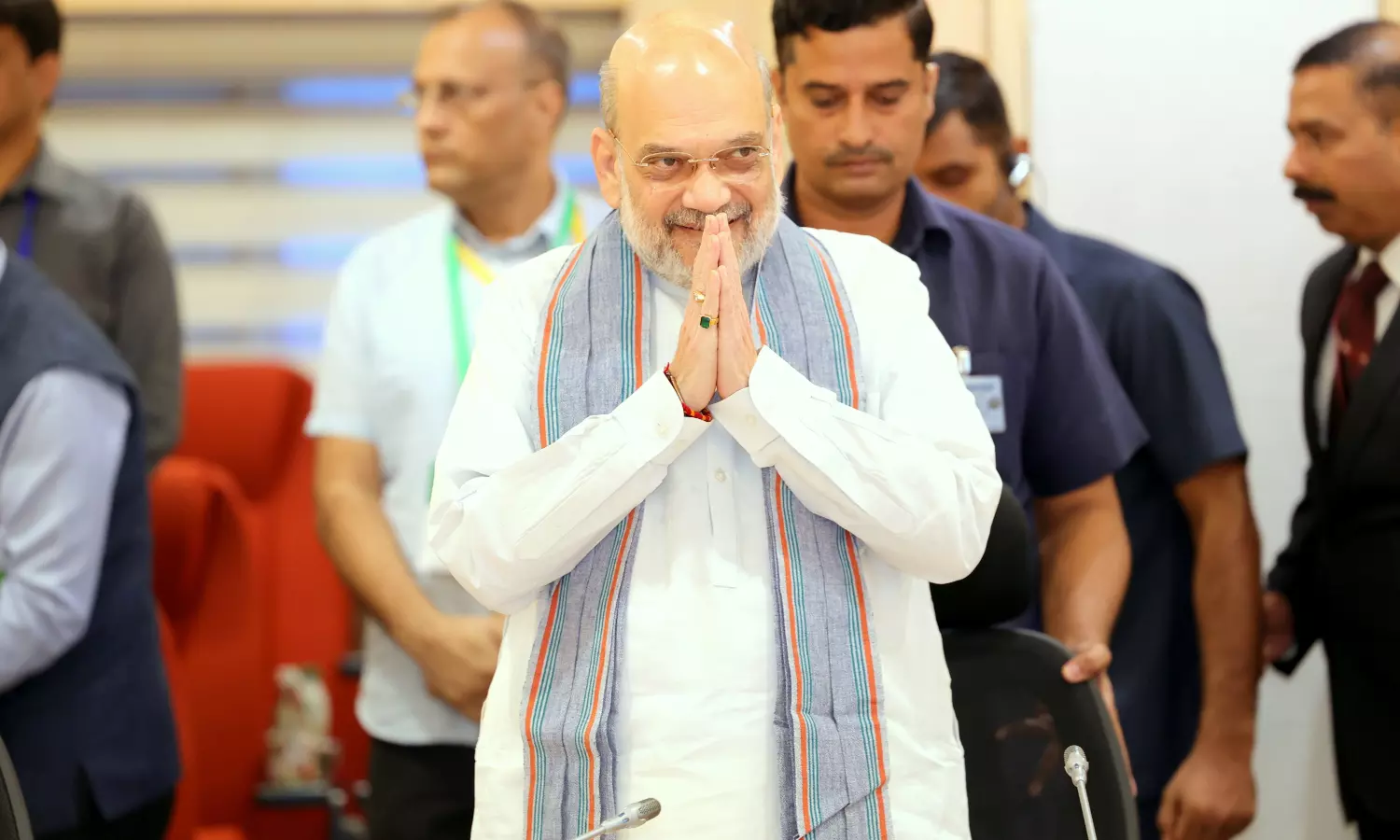Government Committed to End Naxalism by ’26: Shah

New Delhi: Describing Naxalites as the “biggest human rights violators”, Union home minister Amit Shah said on Monday that the security forces have been carrying out “offensive operations” instead of defensive against these ultras, which had resulted in big successes in recent times and all left-wing extremism-affected states are committed to completely eliminating the Maoist menace by March 2026.
Addressing a high-level meeting with chief ministers and top police officials of the Naxal-affected states, he said due to the improved security situation, high voter turnout -- up to 70 per cent -- was witnessed in the Maoist-hit region in the last Lok Sabha polls, while the region used to see zero polling earlier, he added.
The crucial meeting, which discussed anti-Naxal operations and development initiatives carried out in the affected areas, came days after the security forces killed 31 Maoists in the forests of Chhattisgarh in one of the most successful operations in recent times.
Along with the “offensive operations, the government has also adopted an offensive strategy” by activating the National Investigation Agency to choke the financing of Naxals, which has resulted in a shortage of financial resources for them, the home minister said.
Terming Naxalism as the biggest obstacle in bringing development to remote areas and tribal communities, Mr Shah said that Naxalism prevents education, healthcare, connectivity, banking, and postal services from reaching villages. He emphasised that to ensure that development reaches the last person in society, we must completely wipe out Naxalism. Multiple long-duration operations like 12 to 13 days were conducted, ensuring Naxalites are surrounded, leaving them with no opportunity to escape, he added.
To completely eradicate Naxalism, Mr Shah said, it was essential to give a final push to eliminate this menace once and for all, and urged the chief ministers of all affected states to review the progress of development and anti-Naxal operations at least once a month. Mr Shah also requested the DGPs to conduct such reviews at least once every 15 days.
Describing Naxals as the “biggest hurdle to development”, he said they are the biggest human rights violators who have been depriving over eight crore people, especially the tribals, of development and basic welfare opportunities, and added that Naxalism prevents education, healthcare, connectivity, banking and postal services from reaching villages.
The chief ministers of Chhattisgarh, Madhya Pradesh, Maharashtra, Odisha and Telangana, the deputy CM of Bihar and home minister of Andhra Pradesh attended the meeting.
The home minister said for the first time in 30 years, the number of casualties due to LWE was below 100 in 2022, which is a significant achievement. He said the fight against Naxals was in its final phase, and by March 2026, with everyone's cooperation, the country will be completely free from this decades-old menace.
Mr Shah said 16,463 incidents of violence occurred between 2004 and 2014. The number came down to 7,700, a fall of about 53 per cent, in the last decade. Similarly, the deaths of civilians and security forces have declined by 70 per cent and the number of districts reporting violence came down to 16 from 96, he said.

